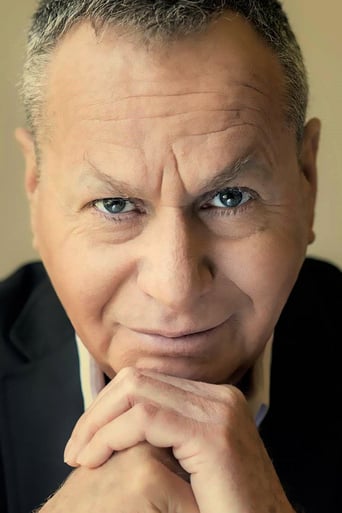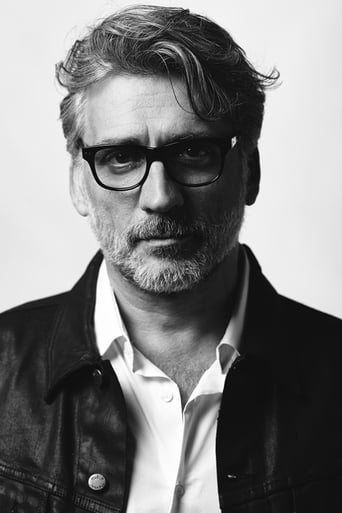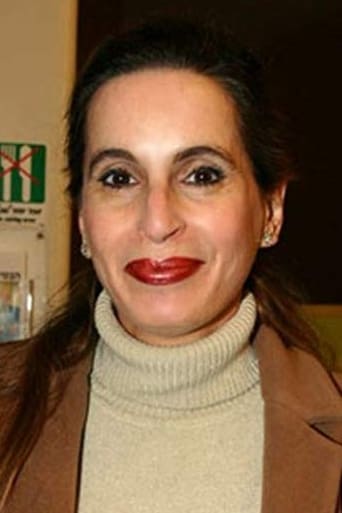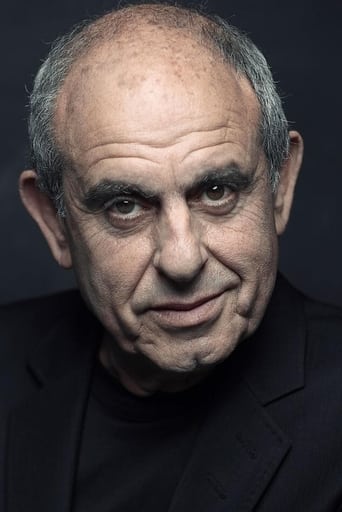Odelecol
Pretty good movie overall. First half was nothing special but it got better as it went along.
Mehdi Hoffman
There's a more than satisfactory amount of boom-boom in the movie's trim running time.
Hattie
I didn’t really have many expectations going into the movie (good or bad), but I actually really enjoyed it. I really liked the characters and the banter between them.
Yazmin
Close shines in drama with strong language, adult themes.
maurice yacowar
Joseph Cedar's Footnote (2011) is a very different film than his Beaufort (2007). It's an intimate family drama, often comic, without explicit political reference. Yet both warn audiences against the dangers of the bunker mentality. In the second, set on the home front, the leading characters suffer from the destructive intransigence of their wills. The central figures, the famous Talmudic scholars Eliezer Shkolnik and his son Uriel, and their archenemy Grossman are so firmly set in their righteousness that they cannot countenance the compromises that could lead to justice and to peace of mind.Indeed the film's key word is "fortress." Uriel publicly thanks his father for having made their home a cultural fortress. When Uriel secretly writes the jury's supposed citation for his father's mistaken award, he slips that term in again. That word prompts Eliezer to doubt the validity of his award — and enables him to remember that the cell-phone call informing him of the prize named his son, not him. Eliezer's hunger for the award deafened him to his son's name.The settings support that term. The offices, the library, and especially both scholars' homes are veritable fortresses of books and papers in their case dedicated to the abstruse minutiae of Talmudic studies. They live in a fortress against the realities and obligations outside. In this sense the film may allude to the problematic isolation of Israel's burgeoning Haredim community from the responsibilities of Israeli citizenship. But Uriel is an academic star. On Shavuot eve he pops up all over the city delivering six lectures. Where Eliezer wears yellow headphones to drown out the outside world — i.e., his family — Uriel has become a public intellectual, a celebrity, to his father's disdain. Although Eliezer's parents moved to Israel in 1932, and he was born there, he seems to personify the Old Jew, Uriel the New. Eliezer is a couch cartoffle, while Uriel plays a mean, very mean, game of squash. Eliezer is resigned to being the Victim, having lost the Israel Prize 20 years running. When Uriel is victimized — the theft of his clothing in the gym — he responds with bravado, exiting in a fencer's uniform, assuming the aristocratic bearing of the German/Austrian enemy. In contrast, Eliezer bristles when the security guard asks him to bare his wrists — he reads the blue entry bracelets as if they were tattooed numbers. As in Beaufort, the Israeli security guard's German shepherd evokes the concentration camps. As Eliezer approaches his own award ceremony at the end, he seems completely dissociated from the surreal business around him — costumed dancers, drummers, the paraphernalia of a televised awards show — especially the puffs of gas-like vapour as the winners approach the stage. Though he was spared the Nazi nightmare this Old Jew assumes its psychological scars and its indelible memories — and responds to every slight with aggressive belligerence. In Eliezer's survey the definitions of "fortress" range down from security and shield to trap. Both men are trapped by their shields against each other. But where Uriel annually nominates his father for the Israel Prize and fights to let him keep it after the mistaken announcement, Eliezer uses the newspaper interview to attack his more famous son's academic standing. The family visit to Fiddler on the Roof leaves Eliezer complacently humming "Tradition," while his son seethes in anger and his wife is pained by knowing of her husband's delusion. Eliezer obviously missed the play's thrust, which is the fiddler's delicate balance on the rooftop trying to modulate his Tradition to deal with the changing world. For Eliezer tradition remains an indomitable fortress.Uriel's meeting with the awards committee is the film's most resonant scene. It begins with telling comedy: the room is so small, so crammed with chairs and people, that any movement is a problem. The image of people jammed together in too small a space clearly indicates that whatever other themes and issues the film may examine, it is crucially about Israel — the sliver of land surrounded by the sea and the massive nations of antagonists bent upon driving the Jews into it. In a space so small there is no room for such heated and profoundly protracted differences. Yet in that small space the conflicts persist. The space filled with chairs is also filled with egos, with fortresses, the characters determined to defend their principles to the end. Uriel properly challenges Grossman on the amount of anger and violence caused by his intransigent defence of his Truth. In that jam no compromise is possible. But in the freer confines of Grossman's office/fortress, Uriel manages to draw out a painful and expensive resolution. The space theme spreads beyond that room. Eliezer and Uriel are academically jammed into a minuscule area of scholarship. Eliezer constantly makes himself an outsider, getting trapped outside his son's award ceremony, walking beside the family car, standing apart in family photos. Grossman is ramming together his garbage cans when he calls to Eliezer his unwelcome Mazel tov on Uriel's success. The film closes on the TV host's instruction to rise for Hatikvah, Israel's national anthem. That confirms that the film's family drama and the academic politics are but metaphors for the nation's predicament. We don't learn Eliezer's decision on accepting the award because we don't know which way Israel's vehemently divided patriotisms will go. We don't hear the anthem but we know its powerful sway. Perhaps the clash of too rigid and righteous fortresses, each with its own ardent truth, risks reducing the national project to a footnote. For more see www.yacowar.blogspot.com.
dario_malic
"He'arat Shulayim" ("Footnote") is an Israeli 2012 Oscar contender, a 2012 Cannes screenplay award winner, and altogether a very highly praised movie. It tells a story about Eliezer and Uriel Shkolnik, a father and son, both Talmud scholars but with different amounts of public recognition. Eliezer devoted all of his life to comparing different versions of the Talmud but never published anything since his colleague beat him to it leaving as his greatest achievement a footnote in his mentor's book. On the other hand, his son Uriel wrote a lot of books on all kind of subjects and got praise for all of them. As a matter of fact, the movie opens with Uriel getting accepted to the Israel Academy of Sciences and Humanities, the honor which his father never got, and it's immediately clear that Eliezer doesn't take it well. The plot thickens when Eliezer finds out he won the Israel Prize, the most prestigious national award, after 16 consecutive failed nominations, and Uriel learns that it is he who should get it and his father got notified by mistake.The profession of the characters could really be anything, it isn't of much relevance. What the film talks about is how easily people get infatuated with greed, jealousy and the (imagined) importance of their work. It also talks about the father-son relationship, not just through the example of Eliezer and Uriel but Uriel and his son Josh too. It shows the difference between generations but also the inevitability of our family ties. It is all well displayed in the behavior of Uriel. He tries to be a better father than his own but still makes some of the same mistakes. He also tries to help his father despite of the contempt Eliezer shows for his work, but can't help being angered by it.The movie is very precise in depicting how an academic community functions. It is all about prestige. Who will publish something first or who's work will be cited in a footnote. It is unbelievable, but true, what would people do just to get their name mentioned or written somewhere. A colleague of mine told me today "It's all about immortality.". But what does that really mean? A hundred years from now someone will be reading something and my name will be there. So what? Neither of us gets anything from that. But let's get back to the movie. In the beginning you sympathize with Eliezer. He has been working hard for years and just because someone got lucky it turns out it has all been in vain. But as the movie goes on we learn that he's no better than everybody else. He just wants the spotlights on him. In the end it's even suggested he realized that the award shouldn't go to him but he accepts it anyway. It isn't shown explicitly because the movie ends just before winners get on the stage, but I can hardly imagine any other outcome. And because of that we wound up feeling sorry for Uriel who won't get the deserved award and can't even get nominated ever again (part of the deal with the president of the committee) because of his selfish father.The acting is very good. Shlomo Bar-Aba in the role of the father and Lior Ashkenazi in the role of the son give subdued but impressive performances. Cinematographer Yaron Scharf did a good job showing libraries and houses crowded with books, emphasizing in that way the absurdity of wanting for your name to be mentioned just to be lost in a heap of others. Probably the best part of the movie is editing done by Einat Glaser-Zarhin. In the first part of the movie narrator lists things we should now about Eliezer and Uriel and it's a joy watching those sequences. The movie balances between serious drama and a little less serious comedy and is greatly helped in it by Amit Poznansky's amusing soundtrack. He often uses tense music to create a comedic moment, at the same time keeping us aware of the seriousness of the whole situation. The only thing that got me disappointed was the most lauded one, screenplay. While it has some great moments, like the one in which a numerous committee holds a meeting in the tiniest of rooms, it feels stretched and unpolished in places which decreases the overall impression.There's one more thing. The movie talks about many things. Greed, excellence, compassion, jealousy, revenge, dedication, fear, happiness, and more. But I just can't figure out what's the point. What did the author, Joseph Cedar, want to say with it. Just to be clear, this isn't one of those movies where people are wondering what is it all about. It's all very clear, it just doesn't feel like Cedar had a point to make. Maybe he just wanted to show how the things are functioning without drawing any conclusions. If so, I would find a documentary a better way to show it. If not...I don't know. Maybe I'm just too demanding. It's best you see it and decide for yourselves.More reviews at http://onlineimpressions.blogspot.com/
Paul Tremblay
What to say: the rhythm is perfect, the tone is expertly controlled by the director, the acting is close to sublime. This character-driven narrative lacks nothing and, yes, it is unpredictable at times. The autistic father is played with deceptive ease and gusto by Shlomo Bar Aba and, when you think about it, his finding of the truth could only be unavoidable given his expertise with the written word and his penchant for making nearly impossible (for us poor mortals!) connections between expressions, phonemes and other linguistic beasts. The fact that the film ends up with us wondering if Eliezer, the father, will accept the prize or not is part of the quality of the movie: it depends on you as a viewer, as well as your personality. I think he can only accept as to level off the playing field, so to speak, and to let his son think he (his son) is in control. But who knows? Last word? Excellent!
Hilbrand Bos
This is a very good movie, but it could be better. The feel of the whole story very much reminded me of the Coen Brothers movie 'a serious man'. It has the same sense of general awkwardness in its characters. The story is very well told. It has a chapter structure and the parts of father and son have kind of symmetry to it, resulting in a feeling of bittersweet irony. If you like irony in all its layers and subtleties, then this is definitely something to watch. The one thing that could make this movie better in my opinion, is the climax that the whole movie is building up to, but which is left to your imagination. In my taste a little too much so, but decide for yourself!






